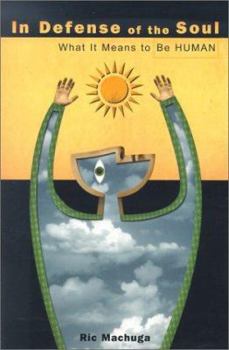In Defense of the Soul: What It Means to Be Human
Select Format
Select Condition 
Book Overview
The claims of evolution and, more recently, the proponents of artificial intelligence have brought into question what it means to be human. Denying the existence of the soul apart from the body, many... This description may be from another edition of this product.
Format:Paperback
Language:English
ISBN:1587430290
ISBN13:9781587430299
Release Date:January 2002
Publisher:Brazos Press
Length:208 Pages
Weight:0.75 lbs.
Dimensions:0.6" x 6.1" x 9.0"
Age Range:18 years and up
Grade Range:Postsecondary and higher
Customer Reviews
1 rating
A solid tile in the mosaic of "Aristhomistic" renaissance
Published by Thriftbooks.com User , 15 years ago
Why, oh why, is this book (as of early January '09) only available used (or 'new' below market price)? Fortunately, at least, the current prices are low enough to welcome buyers; unfortunately, they suggest it's not worth much. On the contrary, Professor Machuga's _In Defense of the Soul_ (IDS) is a very clear and compelling introduction to (or survey of) the impact that Aristotelian-Thomistic metaphysics has on current trends in science, and vice versa. Not only does each chapter begin with a summary of the contents (viz., for skimming or review purposes), but also Machuga clearly has long practice in explaining metaphysics to non-specialists. Despite its brevity, IDS covers a great range of topics: ontology and phylogenetic continuity, form versus shape (hylomorphism), evolution and species, mind and brain, causation and teleology, artificial intelligence and meaning, free will and rationality, etc. If any or all of these topics interest you, get this book. It's a quick read and would make a superb reader for serious beginning philosophical students. It would also make for a quick wake-up call to more advanced readers, in so far as it orients the readers to a vital and robust tradition capable of critically appropriating the gains of exact science in the classical humanist tradition. (In case you're wondering, Machuga makes trenchant criticisms of intelligent design as a quasi-Cartesian confusion of form with shape, insofar as it claims formal design is physically discernible.) Machuga also has a fascinating assessment of Cairns-Smith's clay-sediment theory of biological origins and how, if it were borne out scientifically, it would still find a comfortable place in Aristotelian ontology, which he aptly classifies as "ascientific without being unscientific." The most important element of IDS is, as Machuga notes more than once, the light it throws on previous and greater work by others in the "Thomistotelian", or realist (and anti-scientistic), tradition: Gilson, Jaki, Adler, Polanyi, Popper, et al. The only claim to "originality" Machuga might make is the stress he places on per se (law-like) versus per accidens (completely particular) efficient causation and how the distinction grounds free will as a *rational* yet wholly physical *power* to inform matter (analogous to the way words inform phonemes). I would have liked to see a larger bibliography and an index in the IDS. I was also startled by how many typos and basic copy-edit errors made it to press. Nonetheless, IDS is a great primer and addition to the current "Artisthomistic" renaissance underway in the work of people like G. Klima, J. Ross, J. Haldane, W. Wallace, W. Smith, D. Braine, A. Reimers, E. Feser, N. Clarke, D. Oderberg, et al.






